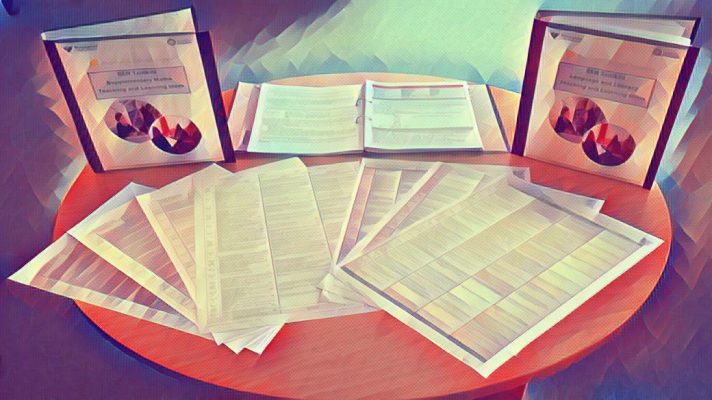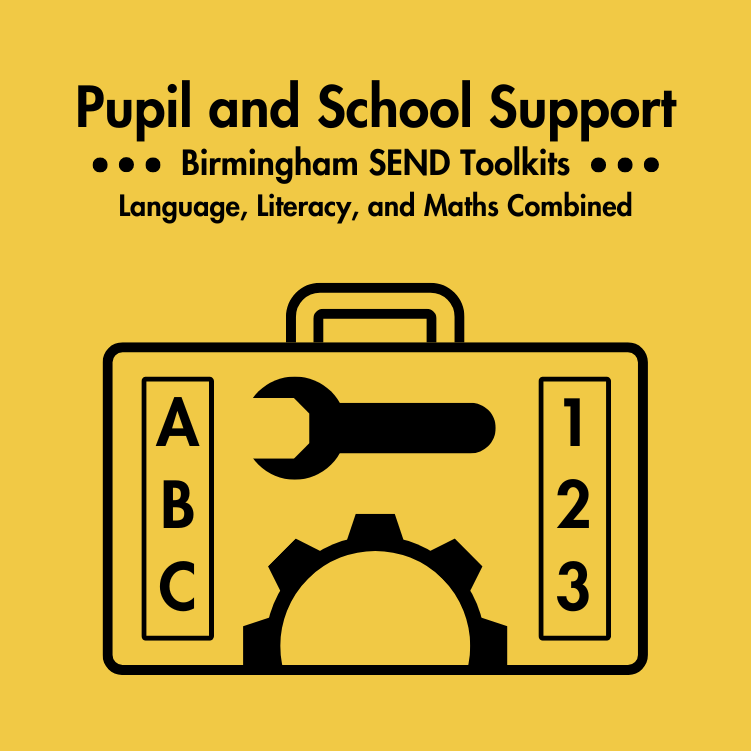Birmingham SEN Toolkits | Language, Literacy and Maths Combined-2024
£990.00
 The Combined Birmingham SEN Toolkit focuses on attainment in speaking and listening, reading, writing and maths. It is a tool that supports schools in identifying specific levels of need and ability for pupils with their literacy and maths skills (including speaking and listening). The resource breaks down areas of reading, writing, speaking and listening, core and supplementary maths into discrete skills on a continuum that enables schools to set appropriate and aspirational targets and to track progress, as well as supporting teachers with a range of teaching and learning ideas to develop skills alongside quality first teaching in the classroom.
The Combined Birmingham SEN Toolkit focuses on attainment in speaking and listening, reading, writing and maths. It is a tool that supports schools in identifying specific levels of need and ability for pupils with their literacy and maths skills (including speaking and listening). The resource breaks down areas of reading, writing, speaking and listening, core and supplementary maths into discrete skills on a continuum that enables schools to set appropriate and aspirational targets and to track progress, as well as supporting teachers with a range of teaching and learning ideas to develop skills alongside quality first teaching in the classroom.
Please note: This cost is the initial purchase cost and gives you online access for the first 12 months. Within this time, you will have access to any updates made to the materials. After 12 months you will then have the option to download the documents and continue to use as they are, or you can pay a small subscription fee to continue to benefit from any updates. The cost of continued subscription is £150 for both the maths and the literacy toolkits.
Sold Out


